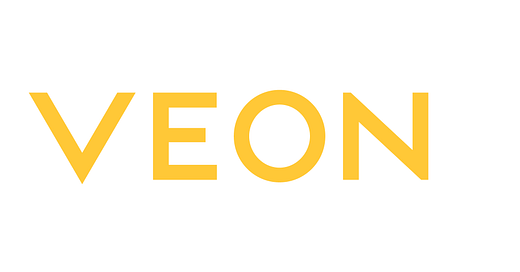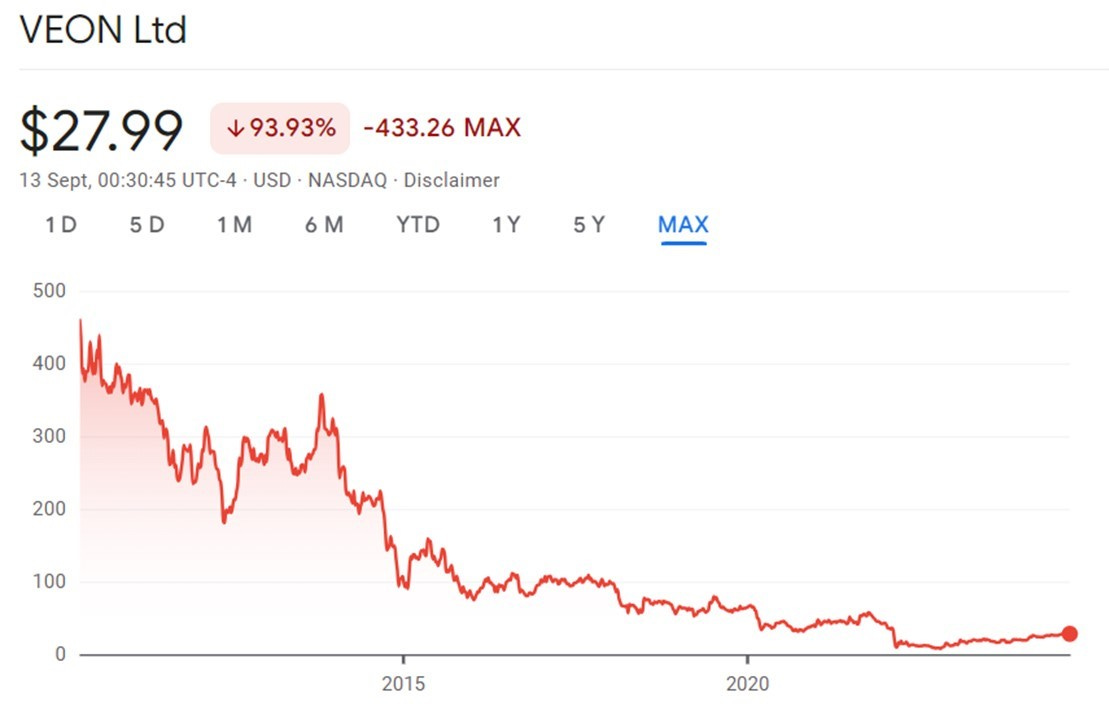Briefly introduced in the “Stranger Things” post as “a company that really piqued my interest”, I have now dug deeper into its business.
VEON is a digital operator that provides converged connectivity and digital services in Pakistan, Ukraine, Kazakhstan, Bangladesh, Uzbekistan, and Kyrgyzstan, six markets that are home to nearly 520 million people (7% of world’s population). It’s headquartered in the Netherlands and has a double listing on Euronext Amsterdam (ticker: $VEON.AS) and Nasdaq (ticker: $VEON).1
VEON originated from the consolidation of VimpleCom assets in Russia and the frontier market operations of Telenor, headquartered in Norway. As recently as 2021, Russia constituted almost half of its business, with another significant portion originating from Ukraine. Following Russia’s invasion of Ukraine in 2022, VEON's shares suffered a significant decline from which they have yet to recover. As the CEO described it: “Two of our largest markets, 70% of the business, went to war with each other.”
VEON decided immediately to entirely sever its Russian ties and pledge unwavering support to Ukraine: as a clear indication of where the company’s allegiance resides, Mike Pompeo - former US Secretary of State - was recently added to the board of its Ukrainian subsidiary. In October 2023, after two years of negotiations, VEON successfully divested its Russian business to local management.
A bit of history to understand the present
However, its problems and underperformance didn’t begin in 2022, they had a long way coming.
VEON was “born” in 2009, when Norwegian telecoms group Telenor reached an agreement with Russia’s Alfa Group (run by Mikhail Fridman) to combine common assets and create a new US-listed mobile operator, potentially ending years of legal disputes.
Alfa contributed Russia’s second largest mobile company by subscribers, PJSC VimpelCom2, to be merged with Ukraine’s leading mobile operator Kyivstar to create VimpelCom Ltd. Upon completion, Telenor owned 39% of the new entity, with Altimo (Alfa Group’s telecom arm) holding the same percentage but a majority of voting rights, and the rest was free float. VimpelCom was registered in Bermuda, headquartered in the Netherlands and listed on NYSE (it would then move to Nasdaq in 2013): the new company provided integrated mobile services to consumers in Russia, Ukraine and other CIS countries, as well as Georgia, Vietnam, Cambodia and Laos.




